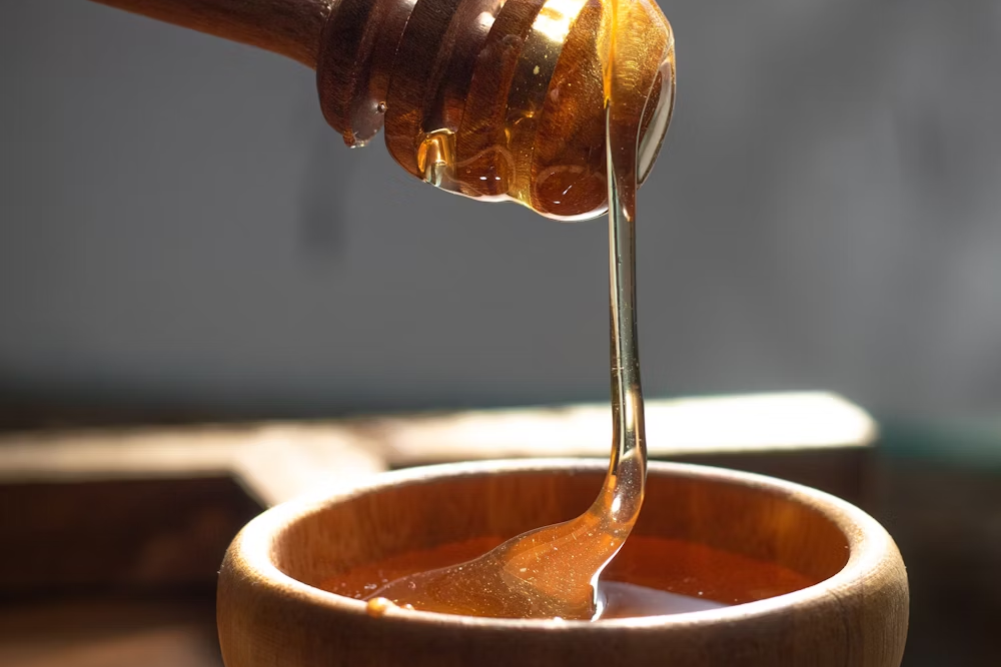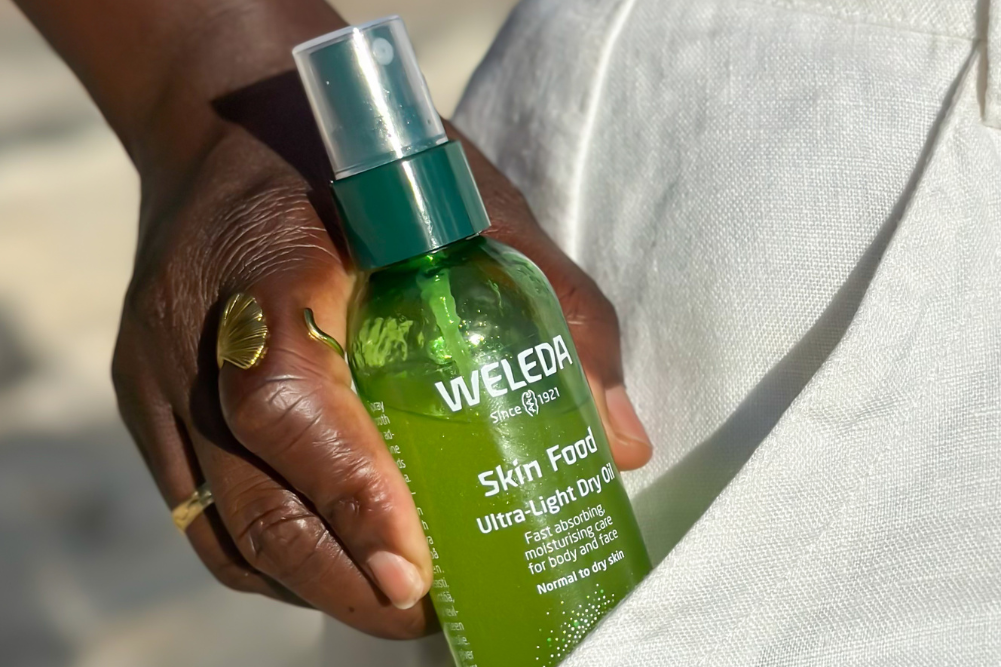What are the good oils?
One of the most valuable of all beauty aids is the simplest and easiest to get hold of: unrefined vegetable oils. They’re nutrient-rich and boast a plethora of hair-, nail- and skin-improving properties, such as being cleansing, hydrating, healing, stimulating, nourishing, strengthening and protective. They can be a one-stop shop for most of your cosmetic needs, from lifting impurities from the surface of the skin to moisturising it.
Their most important job, however, is promoting the skin’s immune system by providing skin barrier protection. All vegetable oils are defined as lipids. When applied to the skin, lipids (fats and oils) are able to mimic the skin’s own lipid content to help ensure the structure of the epidermis (the skin’s outermost layer) is intact. Lipids are like the glue between skin cells or the mortar between bricks (in the epidermis the bricks are the keratin cells). They help prevent individual skin cells from losing water, lubricate the skin and create the smooth, non-flaky appearance.
When lipids are depleted, we experience surface roughness, dryness, flaking, fine lines and a tight, uncomfortable feeling. Moreover, the skin’s immune system is depleted and the healing process impaired. Therefore lipids play a vital role in protecting the skin from environmental damage, dehydration and skin conditions such as dermatitis.
Vegetable oils are often used as the oil component in natural moisturisers. But it’s important not to confuse these beneficial oils with the ubiquitous mineral oil, which is occlusive on the skin’s surface and is of no benefit to the health of the skin.
Each vegetable and nut oil carries its own unique nutrient and fatty acid profile, lending itself to specific skin types and conditions and purposes.
The oils
Olive oil is rich in the mono-unsaturated fatty acid, oleic acid, a potent antioxidant that when applied regularly and after sun exposure (not during) may help prevent the severity of sun damage and tumour growth by reducing free radical damage. It is very rich in texture and aroma and best suited to dry or mature skin types. It can also be very helpful as a dandruff treatment.
Due to its high level of vitamin E, sesame oil (unrefined) offers some sun protection (but only minimal — an SPF of around 8) by quenching free radicals. It also makes an excellent restorative moisturiser. Ricebran oil is high in a group of lipids called gamma oryzanol, touted as being potent antioxidants. Alongside its high vitamin E content, research shows it to have substantial UV protective properties (though it should not be used as your only sunscreen). It is also a good emollient.
Soybean oil boasts the second best source of vitamin E (after wheatgerm oil) and therefore also has some UV protective properties. It is also high in lecithin, a phospholipid with excellent skin-conditioning benefits. Macadamia nut oil contains palmatoleic acid, a fatty acid found in human sebum, making it a superb oil to use on mature skin types that suffer diminished levels of sebum and moisture.
Jojoba oil contains its own in-built humectant and has emollient and healing properties, making it an ideal moisturiser. It is a light oil and, unlike other oils, doesn’t leave an oily residue. Because of its sebum-normalising properties, it is suited to oily skin and makes a formidable scalp and hair treatment. It’s also helpful for eczema and psoriasis.
Sweet almond oil is mineral-rich and replete in linoleic acid and is a great emollient for chapped skin. Apricot kernel oil is another impressive emollient that is light in texture, versatile and suited to most skin types, including mature, sensitive and inflamed. Sunflower oil (similar to safflower oil) is light and rich in vitamins A, D and E, and also mineral-rich, making it a beneficial oil for most skin types.
Wheatgerm oil is a valuable source of vitamin E and essential fatty acids, making it an excellent healing oil for skin conditions such as dermatitis and also dry and mature skin. Rosehip oil is extremely beneficial in tissue regeneration for minor burns, wrinkles, sun damage, inflammation and hyperpigmentation. This is believed to be due to the high levels of both linoleic and linolenic fatty acids, though the presence of retinoic acid in the oil may also contribute to its skin benefits.
Avocado oil is highly nutritious, rich in vitamins A and D, lecithin and potassium, not to mention chlorophyll. It can be used for soothing nappy rash, eczema and climate damage, or for mature, dry skin and wrinkles. Evening primrose oil is high in gamma linoleic acid, important in the treatment of eczema, psoriasis and dry skin and scalp (especially when consumed).
Coconut oil is a saturated oil but boasts strong moisturising and anti-microbial properties, making it a great ingredient for cosmetics. It boasts medium-chain fatty acids in the form of medium-chain triglycerides that can be released to fight harmful germs. It makes a superb pre-shampoo hair treatment.
These oils can be used in a variety of ways — in emulsions (cleansers and moisturisers) or alone massaged into the skin, in a bath, or incorporated in fresh food masks and hair treatments. They also make excellent carriers for essential oils.
As these oils help dissolve impurities on the surface of the skin, they make impressive cleansers. Cleansing oily skin with oil can help balance sebum. However, it’s preferable to use a light oil such as jojoba (it is also a sebum normaliser) to massage into the complexion. It’s important to remove the oil well with a damp cloth gently wiped over the skin. Do this a few times until the oil is removed.
Massage your preferred oil over your body before showering and, when immersed, use a damp flannel to wipe over the skin. It’s a much kinder substitute for soap. Your skin will feel silky soft.
Use oils that are unrefined and have been mechanically pressed as opposed to chemically extracted. And enjoy.







